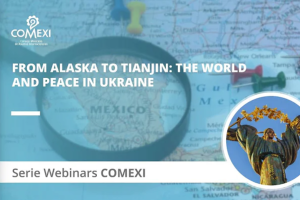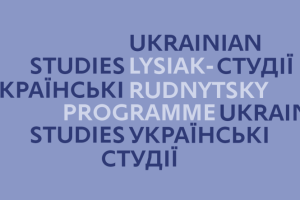Housing standards, employment and special needs: how civil society and the government can help the internally displaced persons in winter
Experts and analysts discussed how the Ukrainian government, local authorities and volunteers assist IDPs given the forthcoming winter during the online event “Will the Upcoming Winter Cause a New Wave of Ukrainian Refugees?”, organized by the Democratic Initiatives Foundation in partnership and with the financial support of Heinrich Böll Foundation (Kyiv, Ukraine).
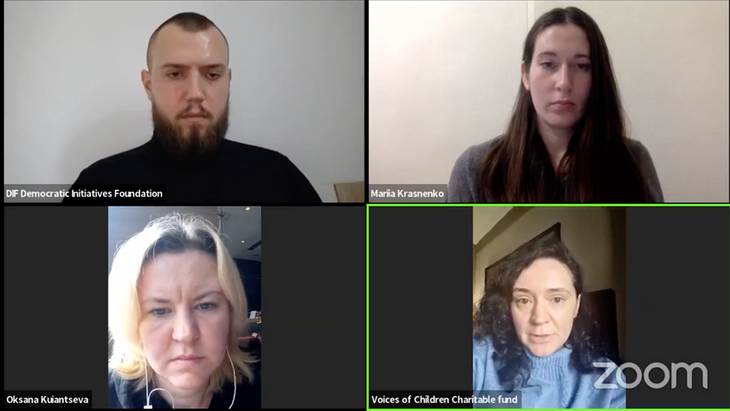
Serhii Shapovalov, a political analyst at the Democratic Initiatives Foundation, opened the meeting by emphasizing the main humanitarian issue Ukraine is currently facing — the problem of internally displaced persons. According to him, in May 2022, The International organization for Migration estimated the number of IDPs at about 8 million people.
However, despite the valuable support of Ukrainian civil society, the main needs of IDPs are changing rapidly in the light of the upcoming winter. Therefore, it is crucial to explain to our foreign partners the situation on battlefield and economic challenges it poses.
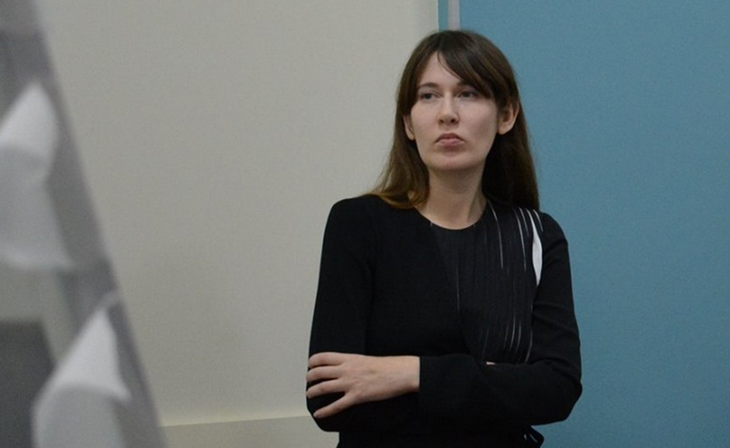
Mariia Krasnenko, a legal expert at Group of Interest public holding, stated that in November 2022, we still do not obtain enough information on the actual number of IDPs.
She also highlighted two basic needs of the internally displaced persons in winter time: work and housing.
“Still, these two blocks continue to be the most requested by people. Again, because it is about their ability to survive, and here we talk about winter. Of course, in terms of war, it is one of the biggest challenges for all Ukrainians: we talk about employers, employees and business, especially one that had moved.”
According to Mariia Krasnenko, another topic of discussion is reconstruction. She commented on the problem of modular houses, stating that these buildings do not seem as a proper solution for housing issue, as they do not contribute to adaptation and further integration.
“We must pronounce it: Russia is a terrorist state, because its actions can lead to the death of people either from missiles or from cold. Particularly, I am talking about the territories which infrastructure was destroyed.”
Furthermore, an expert mentioned the impossibility of any planning, as the Russian terror undermines any strategies.
Mariia Krasnenko also commented on the problem of prejudice for IDPs at working places. It was mentioned that the government implements the initiative to financially help the entrepreneurs who employ IDPs. However, it is important to think about the integration of IDPs in local communities.

Oleksandr Dmitriev, a Program Head at Caritas International Foundation, pointed out that the initiatives developed for the needs of IDPs, nowadays might be actually used for all categories of Ukrainian citizens. Such situation is due to constant blackouts and the disruption in food and medicine supply chains.
“The disruption in food supply chain may also affect our partners. Here, I would like to emphasize that now the help for Ukraine is in fact a long-term assistance for the economies of the EU members and the whole world.”
Furthermore, the expert stressed the necessity of finding comprehensive solutions, as the targeted policy changes do not provide due assistance for IDPs’ needs.
As for the employment issue, Oleksandr Dmitriev stated that it cannot be solved by grants or the establishment of micro-businesses. In order to avoid competition, there must be a systematic approach to the problem.
“I want to put an emphasis on the fact that now Ukraine requires institutional support (how to establish cluster interaction between IDPs, businesses, and the state) even more than some additional resources. In that respect, a huge source of assistance may be provided by Ukrainian think tanks.”
He also cautioned that the primary task for the government is to provide the civilians with the minimum standards of housing, such as closed perimeter and thermal insulation. Until then, the major repairs are not the part of our agenda.

Oksana Kuiantseva, a board member and project manager at Vostok SOS, commented on the existing statistics of IDPs number and its relevance. According to her, organizations in each region provide different data, considering the constant flow of people and especially the ones that return to liberated territories.
Another point of discussion concerned the needs of people with low mobility.
Expert stated that the number of people evacuated by Vostok SOS is estimated at more than 30 000 citizens, and more than 3 000 of this number are individuals with special needs.
“The biggest issue for us to make evacuation possible is to find the accommodation for these people: geriatrics, a hospital, a hospice, a shelter with special conditions. These people require medical beds and nurses to take care of them. The biggest issue is to find the places.”
As for the medical supplies, Oksana Kuiantseva highlighted the special demand for chair-wheels and other instruments that make evacuation possible.
According to her, the organization is looking for international programs that can accept Ukrainian refugees with special needs. Vostok SOS has already helped 40 refugees to find high-qualified medical assistance in German clinics. However, it is vital that the countries of the European Union make such programs more wide-spread and accessible for Ukrainian NGOs and charitable foundations.
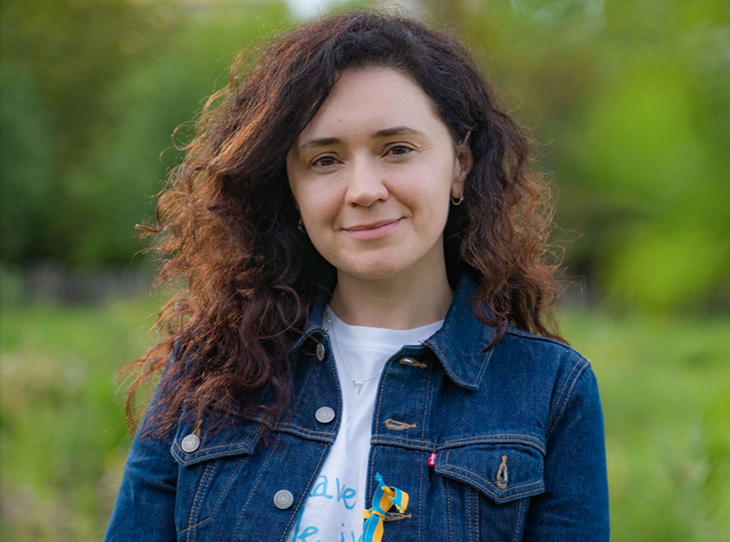
Olena Rosvadovska, a co-founder and chairman of Voices of Children Charitable Fund, focused on the needs of children under war conditions. She emphasized that the main difference in requirements of a child and an adult now is the accessibility to get proper school education. The studies are interrupted by the problems with light, let alone the psychological effects on children.
To start with, our educational system is not flexible. The basements at schools are not duly equipped, too, which poses further obstacles to studying process.
“I think that we need to have a broader view on education. It’s not only about having access to lessons, it’s not only about making some points in homework and tests. It is more about how children feel during the educational process.”
According to Olena Rosvadovska, another psychological challenge for children and teachers rise in situations of parents’ death due to the warfare. In this context, it is important to prepare specialists dealing with children’s trauma. Advocacy is crucial, not only regarding the efforts of various NGOs, but also at the governmental level.
Report:
Anastasiia Polishchuk, Democratic Initiatives Foundation






